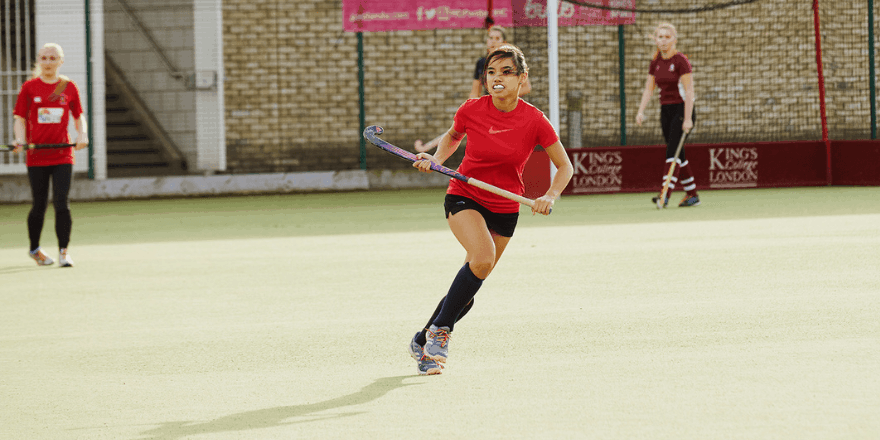Everyone should feel welcome in sport – and that includes trans people

Sport has the power to change lives.
From kicking a ball around in the park at the weekend to elite competition, sport at all levels helps people come together, work as a team, push themselves, and achieve amazing things. Lesbian, gay, bi and trans people should all have the opportunity to be part of sport, and we surely have a lot to offer to the sporting community.
Right now, many LGBT people feel unwelcome in sport, often from an early age, with bullying and harassment driving some people away permanently. Yet many of us do love sport, often in spite of these challenges. There is a growing LGBT movement within sport, challenging cultures and policies that exclude us, and campaigns like Rainbow Laces have created a powerful platform for change. New research shows that these campaigns work, and at Stonewall we’re proud to work with many leading sports organisations and governing bodies on the hard yards needed to make LGBT inclusion a reality.
Our research shows that despite the progress we’ve made, discrimination is still a serious problem for LGBT people in sport, feeding a wider sense that LGBT people are not welcome. These findings are particularly stark for trans people, including non-binary people. Three in ten trans pupils (29 per cent) report being bullied during PE lessons and two in five trans people (38 per cent) say they avoid going to the gym or participating in sports groups because they fear of discrimination and harassment.
But for all these negative experiences, many trans people do take part in sport, and are valued members of their teams, clubs and communities. Most governing bodies in sports have rules to support trans inclusion and have done for many years.
There has been lots of discussion recently about trans people in sport, with trans women being a particular focus. Everyone deserves to be safe playing their sport. Everyone deserves to be welcome and respected playing their sport. A heated ‘debate’ on social media is not how any important policy should be made.
Rather, decisions on guidelines should be informed by robust evidence and developed in consultation with players and athletes with direct experience. No two sports are the same. The physical and tactical skills and attributes needed for different sports are highly varied, as is the profile of players competing across grassroots and elite levels. It’s vital that when they make decisions on inclusion, sports bodies like World Rugby use data that is high quality and specific to both the sport and the level at which the game is being played. Given that rugby is currently trans inclusive, it’s also vital that they consider the experience of trans inclusion in the sport to date.
There has never been a more important time for sport to bring us joy, together.
Inclusion is already the starting point for most people involved in sports, because they love sport and want to make their sport everyone’s game. As sport policymakers work to grow the sports they love and participation rates falter, addressing the substantial barriers to participation that LGBT people face is critical. COVID-19 has taken a huge toll on LGBT communities mental health and health - there has never been a more important time for sport to bring us joy, together.
That’s why I am looking forward to the Rainbow Laces campaign later this year. I’m looking forward to the joy of hundreds of thousands of fans and players wearing the laces, celebrating the great work on inclusion that’s already happening with partners like the Premier League, and inspiring others to step up their work to make sport everyone's game. And I’m looking forward to stretching out my creaky knees, lacing up my studs and getting back on the pitch to coach rugby to the kids in my area, in a team where everyone is welcome.
We’ve always been here. We deserve to be here. Everyone should feel safe and able to participate in the sports they love.

